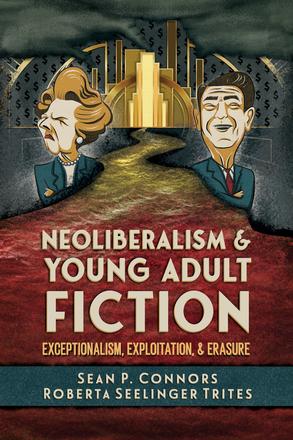
Neoliberalism and Young Adult Fiction
Exceptionalism, Exploitation, and Erasure
One of the first critical volumes to examine how young adult literature reproduces but also resists neoliberalism
Description
In the twenty-first century, the influence of neoliberalism, the belief that society benefits when both individuals and corporations are free to maximize their talents in the service of responding to social needs and problems, resonates through all domains of human life. And yet, little critical study has been given to the reproduction of a neoliberal social order in YA literature. Neoliberalism and Young Adult Fiction: Exceptionalism, Exploitation, and Erasure examines how some YA literature naturalizes neoliberalism in positioning teenagers as self-enclosed, competitive individuals. At the same time, however, the authors also examine other YA novels as potential sites of resistance that acknowledge teenagers’ agency to reject neoliberalism’s destructive impulses and to work for social justice and equality through collective action.
With that in mind, the authors of Neoliberalism and Young Adult Fiction analyze such concepts as how the exceptionality of specific characters who embody neoliberal ideals leads to self-enclosed individualism and how environmental exploitation and consumerism lead to destructive effects. The book progresses to an in-depth examination of how racism undergirds US neoliberalism and environmental exploitation. From scrutinizing racism—and the rejection of neoliberalism inherent in the antiracism movement—the study turns to an examination of gender, specifically focusing on the relationship between sexism, exploitation, and embodied rejections of patriarchal thinking. Indeed, erasure is implicated in racism, sexism, and all forms of discrimination that are borne of exploitation. Finally, youth activism—with its rejection of neoliberal ideologies—leads to a culminating chapter about how global youth link YA literature to their protest movements.